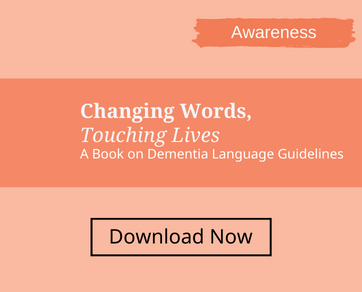Learn more about Dementia
New on DementiaHub.SG
Tips for Managing Disinhibited Behaviours
Dementia self-advocates play an essential role in creating positive change in policies, researches, and initiatives that support the dementia community.
Caring Together as a Family for a Person Living with Dementia
Sarah Low wears many hats: she is a trained pharmacist, mother of two teenage daughters, J. and S., spouse to…
Meeting Centre Support Programme
Persons with dementia and caregivers living in the community meet weekly to socialise, and to receive practical information and social…
When to Consider Moving into a Nursing Home
This article lists the important considerations for a caregiver when deciding on moving their loved one to a nursing home,…
Integrating Play into Dementia Treatment Plans
Listen Min Read Dementia, a progressive neurological disorder affecting millions globally, prompts a multidimensional approach to care. While pharmaceutical interventions…
5 Effective Tea Blends for Caregivers’ Stress and Sleep Relief
This article offers a list of outdoor monitoring solutions and alternatives that may be helpful for caregivers to explore with…
Book Recommendations for Dementia Caregivers
Caring for someone living with dementia may be a long and challenging journey. If your loved one has just been…
Vascular Dementia
Location-tracking technology offers a way to empower a person living with dementia to remain active in the community while caregivers…
Tips for Managing Disinhibited Behaviours
Dementia self-advocates play an essential role in creating positive change in policies, researches, and initiatives that support the dementia community.
Caring Together as a Family for a Person Living with Dementia
Sarah Low wears many hats: she is a trained pharmacist, mother of two teenage daughters, J. and S., spouse to…
Meeting Centre Support Programme
Persons with dementia and caregivers living in the community meet weekly to socialise, and to receive practical information and social…
When to Consider Moving into a Nursing Home
This article lists the important considerations for a caregiver when deciding on moving their loved one to a nursing home,…
Upcoming Events
Community
Memories Café: Sing-along with Aloha Coast Ukulele Group (Mixed Languages)
Date: 27 April 2024
Time: 10:30am to 12:30pm
Date: 27 April 2024 Time: 10:30am to 12:30pm
Community
Caregiver Support & Network: Breathe and Flow: Beginner Yoga with Priscilla
Date: 04 May – 08 June 2024
Time: 3:00pm to 4:00pm
Date: 04 May - 08 June 2024 Time: 3:00pm to 4:00pm
Community
Memories Café: Fit Rhythmique with OneHeartBeat
Date: 11 May 2024
Time: 10:30am to 12:30pm
Date: 11 May 2024 Time: 10:30am to 12:30pm
Community
Memories Café: Sing-along with YouthHarmony (English, Mandarin, Malay)
Date: 15 May 2024
Time: 10:00am to 12:00pm
Date: 15 May 2024 Time: 10:00am to 12:00pm
Community
Memories Café: Sing-along with Goldies Jukebox (Mandarin)
Date: 18 May 2024
Time: 10:30am to 12:30pm
Date: 18 May 2024 Time: 10:30am to 12:30pm
Community
Caregiver Support & Network: Zentangle® Art Class
Date: 21 May 2024
Time: 2:00pm to 4:30pm
Date: 21 May 2024 Time: 2:00pm to 4:30pm
Community
Caregiver Support & Network: Date with Donnie
Date: 21 May 2024
Time: 7:30pm – 8:30pm
Date: 21 May 2024 Time: 7:30pm - 8:30pm
Community
Caregiver Support & Network: Zentangle® Art Class
Date: 28 May 2024
Time: 2:00pm to 4:30pm
Date: 28 May 2024 Time: 2:00pm to 4:30pm
Top Questions about Dementia

Understand Dementia

Diagnosis

Risk Reduction

Supporting Daily Activities

Living Independently

Caregiver Self Care
In the Spotlight
Recommended resources from across the site.
CARE SERVICES RECOMMENDER
A Dance to Remember | National Arts Council
The Arts Can Inspire Your Every Day
Be moved by Decadance Co and Dementia Singapore, who use dance and movement therapy to improve the well-being of seniors with dementia and to inspire others.

Feel safe and supported with your digital dementia care companion
Get your CARA Membership today to access an ecosystem of personalised dementia support and benefits.


Participate in dementia research
Calling persons living with dementia, caregivers, members of the public, and care practitioners to participate in dementia-relevant research studies! You can now contribute to building a dementia-friendly Singapore by sharing your insights!
Browse by User Profile
Dementia affects everyone differently. Find out more about how dementia impacts you and how you can support those living with the condition.

I Live with Dementia

My Loved One has Dementia

I Want to
Play a Part
Whether you are a member of public, an organisation or a partner, find out how you can play a part in the Dementia-Friendly Singapore movement.


